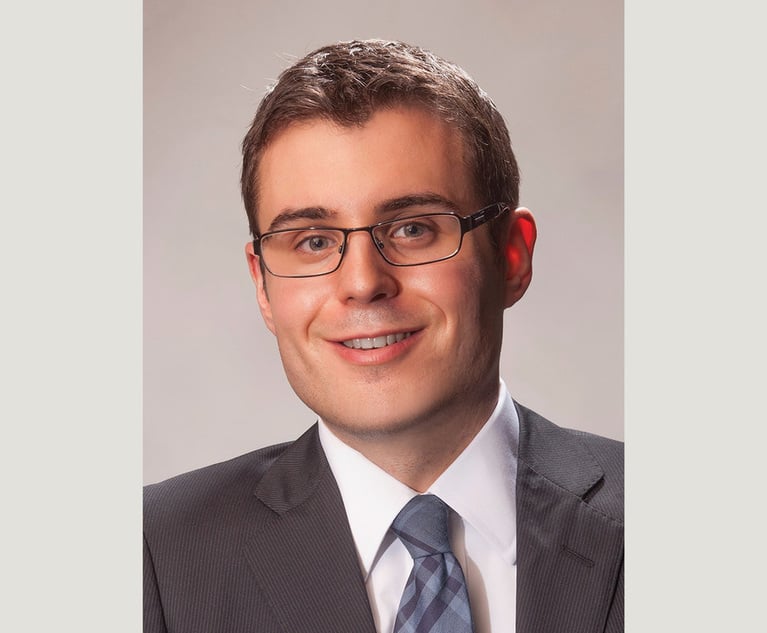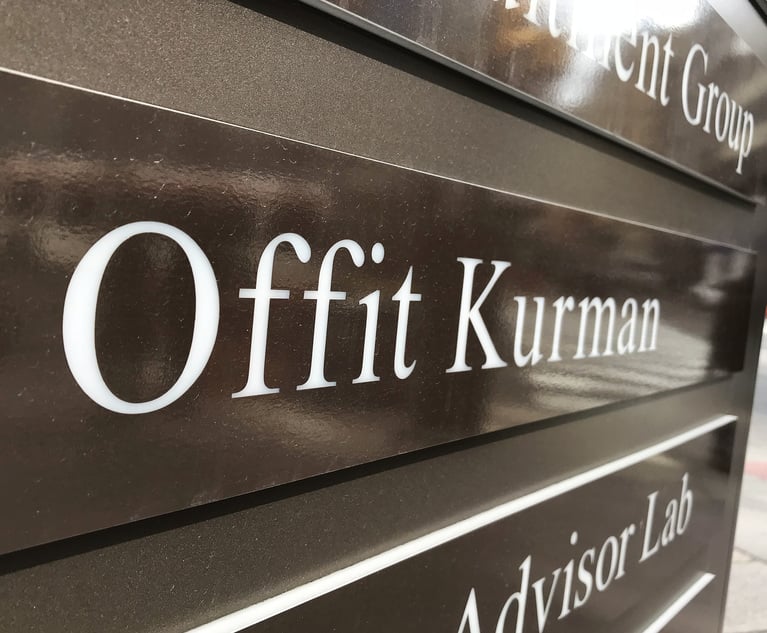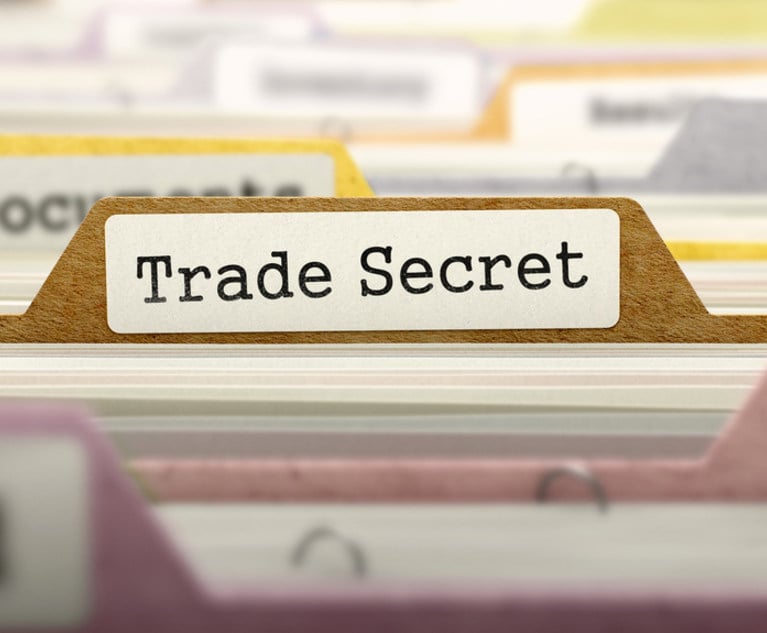A Summary on the Application of Judicial Privilege to Extra-Judicial Statements in Pa.
This article summarizes some of the important case law in Pennsylvania that addresses the application and scope of the judicial privilege with respect to extra-judicial statements.
December 06, 2023 at 11:28 AM
8 minute read
 Zachary L. Gross of Duane Morris. Courtesy photo
Zachary L. Gross of Duane Morris. Courtesy photo The judicial privilege generally immunizes a declarant from potential civil liability for making disparaging statements during the course of a judicial proceeding. The privilege serves an essential function in guaranteeing access to the courts and allowing the participants to speak freely without fear of potential civil liability. Traditionally, the privilege applied to statements made in pleadings and during trial. The courts, however, have gradually extended the application and scope of the privilege to account for extra-judicial statements, meaning statements made outside of the pleadings or the courtroom. This article will summarize some of the important case law in Pennsylvania that addresses the application and scope of the judicial privilege with respect to extra-judicial statements.
In Post v. Mendel, 507 A.2d 351 (Pa. 1986), the Pennsylvania Supreme Court considered whether an extra-judicial statement qualified for protection under the judicial privilege. For context, the plaintiff and the defendant were opposing counsel in a different legal dispute that had proceeded to trial. According to the complaint, the defendant allegedly authored a letter that referenced the plaintiff's conduct during trial and included comments that disparaged the plaintiff's integrity and reputation as a member of the legal community. Although the letter had been addressed to only the plaintiff, the defendant allegedly sent copies to the judge presiding over the trial, the Disciplinary Board of the Pennsylvania Supreme Court, and a witness expected to testify in the trial. The plaintiff filed suit alleging claims for both libel and slander. As one may expect, the defendant filed preliminary objections asserting that the statements made in the letter were absolutely privileged. The Common Pleas Court agreed with the defendant and dismissed the plaintiff's libel claim with prejudice. The Superior Court affirmed. The Supreme Court, however, reversed.
This content has been archived. It is available through our partners, LexisNexis® and Bloomberg Law.
To view this content, please continue to their sites.
Not a Lexis Subscriber?
Subscribe Now
Not a Bloomberg Law Subscriber?
Subscribe Now
NOT FOR REPRINT
© 2025 ALM Global, LLC, All Rights Reserved. Request academic re-use from www.copyright.com. All other uses, submit a request to [email protected]. For more information visit Asset & Logo Licensing.
You Might Like
View All
Faegre Drinker Picks Arizona for Next-Gen Design Lab

Transfer of State-Law Claims From Federal to State Court in Pa.: Avoiding the Default Trap of 42 Pa. C.S. Section 5103
12 minute read
Offit Kurman Hit With $4M Legal Mal Judgment Over Client's Multimillion-Dollar Loss
3 minute read
Competitor Financed Litigation, Abused Discovery to Steal Trade Secrets, Lawsuit Filed by Sidley Austin Alleges
Law Firms Mentioned
Trending Stories
- 1Uber Files RICO Suit Against Plaintiff-Side Firms Alleging Fraudulent Injury Claims
- 2The Law Firm Disrupted: Scrutinizing the Elephant More Than the Mouse
- 3Inherent Diminished Value Damages Unavailable to 3rd-Party Claimants, Court Says
- 4Pa. Defense Firm Sued by Client Over Ex-Eagles Player's $43.5M Med Mal Win
- 5Losses Mount at Morris Manning, but Departing Ex-Chair Stays Bullish About His Old Firm's Future
Who Got The Work
J. Brugh Lower of Gibbons has entered an appearance for industrial equipment supplier Devco Corporation in a pending trademark infringement lawsuit. The suit, accusing the defendant of selling knock-off Graco products, was filed Dec. 18 in New Jersey District Court by Rivkin Radler on behalf of Graco Inc. and Graco Minnesota. The case, assigned to U.S. District Judge Zahid N. Quraishi, is 3:24-cv-11294, Graco Inc. et al v. Devco Corporation.
Who Got The Work
Rebecca Maller-Stein and Kent A. Yalowitz of Arnold & Porter Kaye Scholer have entered their appearances for Hanaco Venture Capital and its executives, Lior Prosor and David Frankel, in a pending securities lawsuit. The action, filed on Dec. 24 in New York Southern District Court by Zell, Aron & Co. on behalf of Goldeneye Advisors, accuses the defendants of negligently and fraudulently managing the plaintiff's $1 million investment. The case, assigned to U.S. District Judge Vernon S. Broderick, is 1:24-cv-09918, Goldeneye Advisors, LLC v. Hanaco Venture Capital, Ltd. et al.
Who Got The Work
Attorneys from A&O Shearman has stepped in as defense counsel for Toronto-Dominion Bank and other defendants in a pending securities class action. The suit, filed Dec. 11 in New York Southern District Court by Bleichmar Fonti & Auld, accuses the defendants of concealing the bank's 'pervasive' deficiencies in regards to its compliance with the Bank Secrecy Act and the quality of its anti-money laundering controls. The case, assigned to U.S. District Judge Arun Subramanian, is 1:24-cv-09445, Gonzalez v. The Toronto-Dominion Bank et al.
Who Got The Work
Crown Castle International, a Pennsylvania company providing shared communications infrastructure, has turned to Luke D. Wolf of Gordon Rees Scully Mansukhani to fend off a pending breach-of-contract lawsuit. The court action, filed Nov. 25 in Michigan Eastern District Court by Hooper Hathaway PC on behalf of The Town Residences LLC, accuses Crown Castle of failing to transfer approximately $30,000 in utility payments from T-Mobile in breach of a roof-top lease and assignment agreement. The case, assigned to U.S. District Judge Susan K. Declercq, is 2:24-cv-13131, The Town Residences LLC v. T-Mobile US, Inc. et al.
Who Got The Work
Wilfred P. Coronato and Daniel M. Schwartz of McCarter & English have stepped in as defense counsel to Electrolux Home Products Inc. in a pending product liability lawsuit. The court action, filed Nov. 26 in New York Eastern District Court by Poulos Lopiccolo PC and Nagel Rice LLP on behalf of David Stern, alleges that the defendant's refrigerators’ drawers and shelving repeatedly break and fall apart within months after purchase. The case, assigned to U.S. District Judge Joan M. Azrack, is 2:24-cv-08204, Stern v. Electrolux Home Products, Inc.
Featured Firms
Law Offices of Gary Martin Hays & Associates, P.C.
(470) 294-1674
Law Offices of Mark E. Salomone
(857) 444-6468
Smith & Hassler
(713) 739-1250





